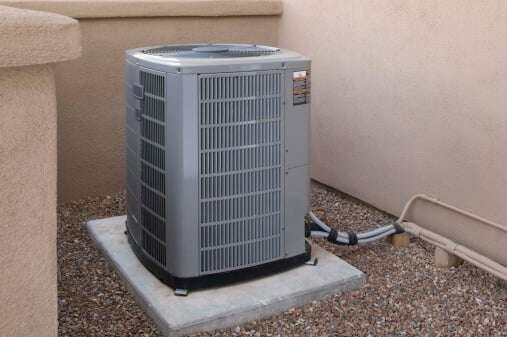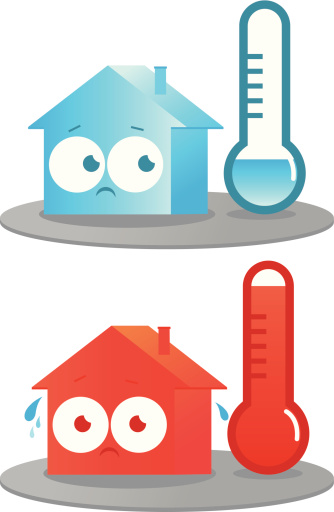 Experts in Your Home understands the inclination, and it's a good one: when the temperatures in northern California begin to fall, many homeowners want to protect their air conditioner with a cover or insulating blanket.
Experts in Your Home understands the inclination, and it's a good one: when the temperatures in northern California begin to fall, many homeowners want to protect their air conditioner with a cover or insulating blanket.
Their motivation makes perfect sense: they want to protect their investment from the cold, the wind and maybe even the snowflakes to come.
While you won't do any serious harm to your compressor by covering it, it would be inaccurate to say that you're failing to be proactive by not covering it – at least based on the climate of northern California. People who live in the Midwest and Northeast – those who endure long, harsh winters defined by sub-zero temperatures, severe wind chills, blizzards and many feet of snow – might wish to do otherwise.
Why You May Not Want to Cover Your Air Conditioner
- Air conditioners are built to withstand outdoor challenges. Most manufacturers build air conditioners to last about 15 years – blunting sizzling heat, brutal cold and fierce rain and wind storms along the way. Air conditioners are not designed – and their internal components do not change – “by region.” In other words, two different customers, one who lives in northern California and one who lives in Alaska, who order a Lennox XC25 will get the same Lennox XC25. The units will be exactly the same. While air conditioners require an annual maintenance check to stay in peak condition, they are rugged and built to last. (In fact, some people would say that this toughness helps explain why air conditioners can be so expensive. They're resilient.) Placing a blanket over such a workhorse is a little like draping a blanket over the back of a Thoroughbred: It's a nice touch but not really necessary. A horse stays warm by drawing on its bulk and digesting hay; your bulky air conditioner stays healthy with regular maintenance checks.
- Moisture will infiltrate your air conditioner anyway. People who say that compressor covers keep water from building up on the external coils make a valid point. This water also can freeze, which can damage the coils over time. But assuming that a cover will solve this problem is a bit short-sighted. It's very much like going outside in a blinding rain storm and putting a denim jacket over your head to stay dry. Yes, you might stay dry for a short time, but that deluge of rain will eventually soak your head. Likewise, water and moisture will eventually find its way into the air conditioner. (And remember: it's built to blunt this reality.) Again, the best defense – especially with regard to the condition of the coils – is that annual maintenance check with Experts in Your Home.
- Air conditioner covers can attract several undesirable elements. Our Experts have found many "spring surprises" in covered air conditioners, especially nests and chewed wires from squirrels, possums and other animals that sought shelter there for themselves and their offspring. Just as often, we've uncovered an accumulation of mildew and mold on air conditioners because the cover has impeded proper air flow, causing the moisture that would otherwise evaporate to fester and grow into a fungus.
You never know: Your friends and family members who live in harsher climates might be at the store right now, buying a compressor cover to protect their air conditioner from the wind, hail, snow and blizzards on their horizon. And they might have good reason to do so (although they might wish to remove the cover once the imminent threat has passed).
Regular Air Conditioner Maintenance is Key
For those of us who live in northern California, the best steps you can take to protect your air conditioner are to check the filter monthly – and replace it when it's dirty – and remain vigilant about regular air conditioner maintenance with Experts in Your Home.







